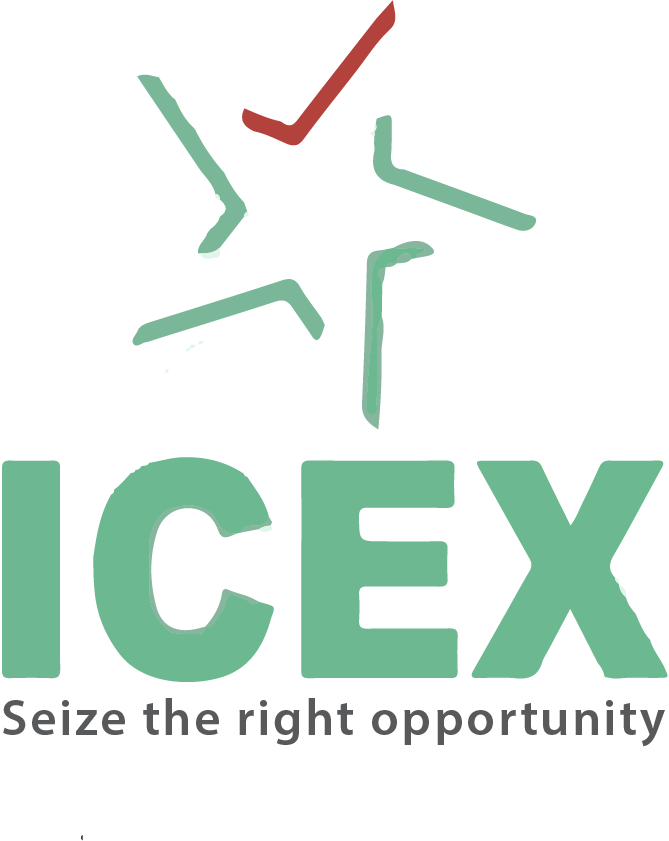- Buy & Sell
- Company Overview
- Registered Office
- Board of Directors
- Key Business Highlights
- Ratios
- Financial Highlights
- Financial Charts
- Share holding Patterns
- Peer Comparison
- Media Updates

4.9
ICEX (Indian Commodity Exchange) Limited Unlisted Shares
Business of ICEX
(i) Indian Commodity Exchange Ltd (“ICEX”) is a recognized Commodity Exchange regulated by the Securities and Exchange Board of India (“SEBI”), having demutualized corporate structure, online trading, clearing, and settlement with best practices. The company operates in one reportable business segment namely "Commodity Exchange" and one reportable geographical segment, i.e., within India and accordingly “business of facilitating trading in commodities and incidental activities thereto” is considered as the only Primary Reportable business segment.
(ii) The Exchange after obtaining the approval to re-commence its trading operation from SEBI, started the trading operation from August 28, 2017, by launching the Diamond Derivative contract of 1 carat. ICEX is the first Exchange worldwide to launch the Diamond Derivative contract. The Exchange launched Steel Long contract on August 28, 2018, exactly after completion of one year of re-commencement of trading operation.
(iii) During the FY 2018-19, the Hon’ble National Company Law Tribunal (“NCLT”) sanctioned the amalgamation of National Multi-Commodity Exchange of India Limited (“NMCE”) with ICEX vide its common order dated August 27, 2018, and August 31, 2018, and the said merger was effective from September 7, 2018. The appointed date as per the scheme was April 01, 2017. Accordingly, NMCE amalgamated with ICEX during the year. The commodities traded on erstwhile NMCE were automatically traded on the ICEX platform by operation of law. The exchange has now 16 different commodity derivatives contracts available for trading on its platform.
(iv) On July 11, 2019, the Paddy Basmati derivative contract was also launched. The Exchange has plans to introduce innovative contracts from time to time and keep its position as an innovative Exchange.
(v) As per SEBI requirement and in compliance with the erstwhile SECC Regulations, 2012, the Exchange has outsourced its services with respect to a clearing, settlement, deliveries, risk management services to Metropolitan Clearing Corporation of India Limited (“MCCIL”) with effect from October 1, 2018, by signing the Clearing and Settlement agreement with MCCIL.
(vi) The Exchange with the support of its well-experienced management team has successfully set up its infrastructure and technology. ICEX has tied up with leading technology provider Millennium IT, subsidiary of London Stock Exchange Group whose systems are used by exchange businesses around the world. The Exchange is ideally positioned to leverage the huge potential of the commodities market and encourage the participation of farmers, traders, and actual users to benefit from price discovery, risk management, and supply chain management in the commodity markets.
SEBI Initiative to Boost Commodity Business
(i) Recently, SEBI has taken various steps to boost the commodity derivative market. In a major decision to strengthen the commodity market, SEBI permitted mutual funds to participate in commodity futures along with PMS. It enabled mutual funds and portfolio managers to participate in the Agri and non-agri commodity derivatives segments (CDS). Earlier, Alternative Investment Funds (AIFs) were allowed to trade in commodities futures.
(ii) Notable policies initiatives have been allowing commodity options, allowing foreign entities to hedge their exposure on the commodity in Indian commodity exchanges and allowing the introduction of commodity indices trade
(iii) In the financial year 2018-19, the SEBI permitted two more exchanges to operate commodity derivative market. With this, there are currently five SEBI recognized electronic multi-commodity national exchanges including ICEX.
(iv) SEBI has permitted ICEX to launch Mutual Fund distribution, using the Exchange infrastructure and the Exchange will start this segment during the current financial year.
FY19-20 Performance Highlights:
1. The operating income for F.Y 2019-20 is ₹ 3.23 Crore as against ₹ 1.90 Crore in F.Y 2018-19.
2. The net loss after tax for the year ended March 31, 2020, stood at ₹ 42.32 Crore as against ₹ 28.57 Crore for the year ended March 31, 2019.
3. The net worth as of March 31, 2020, stood at ₹129.37 crores.
4. In FY19-20, the Company has launched Paddy Basmati Futures Contract on July 11, 2019, thereby marking another milestone. ICEX has created the world’s first organized, transparent, and regulated derivatives market for diamonds.
5. ICEX Company had envisioned and has started a business in Mutual Fund Distribution Scheme and its related activities during the financial year 2019-20.
6. The average daily turnover during F.Y 19-20 was ₹ 156.41 crores as compared to ₹ 93.62 crores in F.Y 2018-19 (single side) with a total of 7098 clients traded on the Exchange.
7. The total turnover of commodity futures traded on ICEX Exchange for F.Y. 19-20 stood at ₹ 40511 crores as against ₹ 24000 crores in F.Y 2018-19. 8. ICEX has a national reach with 138 SEBI registered members, having 1298 Authorised Persons, operating through 3340 terminals including Computer to Computer Link (CTCL) across 329 cities/towns across India as of March 31, 2020.
Big Breaking News on ICEX ( 13.05.2022)
SEBI has cancelled the ICEX license of Commodity as its net-worth has fallen below 100 Crores, the mandatory net-worth required to run an exchange.
| Symbol | ICEX (Indian Commodity Exchange) Limited Unlisted Shares |
|---|---|
| Face Value (₹): | 5 |
| ISIN: | INE678L01012 |
| Demat Status: | NSDL & CDSL |
| Lot Size: | 1000 Shares |
